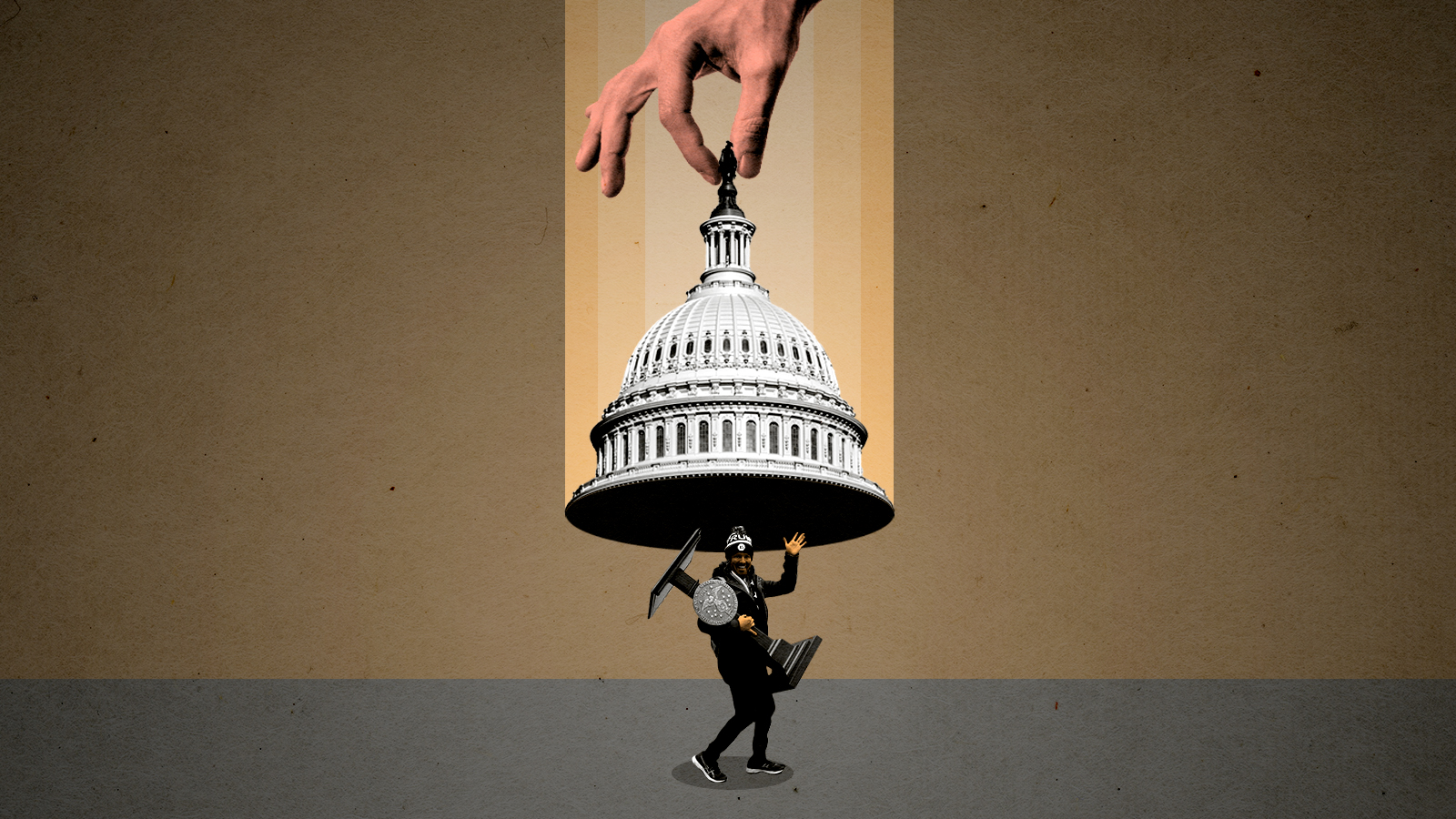Congress sets out to prevent a replay of the Capitol riot


A free daily email with the biggest news stories of the day – and the best features from TheWeek.com
You are now subscribed
Your newsletter sign-up was successful
One year ago this Thursday, President Donald Trump attempted to prevent the certification of Joe Biden's victory in the 2020 election by exploiting ambiguities in the 1887 Electoral Count Act. Thankfully, Senate Democrats have set out to reform the act — and senior Senate Republicans have begun to signal that they might be willing to join the effort. That's excellent news, because reforming the ECA is important, and doing so on a bipartisan basis is the best way of all to accomplish it.
What's the problem with the ECA? For one thing, it permits states to appoint new electors if an election has "failed" (with failure defined very vaguely). It also gives members of Congress an open-ended power to object to electors. And, finally, it fails to specify precisely the vice president's role in counting electoral votes. These ambiguities weren't a problem for most of the past 135 years, because no one in our politics sought to exploit them. But Trump, encouraged by advisers like right-wing lawyer John Eastman, did. The result was the destabilizing chaos and confusion of last Jan. 6.
A recent Washington Post op-ed authored by four constitutional scholars with a wide range of ideological commitments proposes several ECA reforms. To begin with, the authors argue, Congress should disavow any power to question the validity of any state's electoral votes "on the ground that there was something wrong with the popular vote upon which those electors were appointed."
The Week
Escape your echo chamber. Get the facts behind the news, plus analysis from multiple perspectives.

Sign up for The Week's Free Newsletters
From our morning news briefing to a weekly Good News Newsletter, get the best of The Week delivered directly to your inbox.
From our morning news briefing to a weekly Good News Newsletter, get the best of The Week delivered directly to your inbox.
Then there are cases in which a state submits conflicting slates of electors (which hasn't happened since 1876). Congress should attempt to avoid this eventuality by "incentiviz[ing] states to identify in advance which institution is entitled to speak for its voters. If states do this, then Congress only has to count the electoral votes sent from the designated part of the state's government." Congress should also stipulate a clear procedure in advance to resolve disputes in cases where a state government has failed to specify which office or institution gets to make the final call.
Would any of these reforms guarantee the peaceful transfer of presidential power going forward? Not at all. That's because the ultimate source of the violence and constitutional chaos last Jan. 6 was the weaponization of public opinion by a president seeking to keep himself in power despite losing a free and fair election. If sufficient numbers of Americans on either side of our partisan divides can be persuaded by a skilled demagogue that the rules are systematically rigged against them, nothing can prevent them from disregarding those rules and demanding justice by other (extra-legal or extra-constitutional) means.
That said, the best way to minimize the system's vulnerability to mischief is to clarify the rules — and to do so on the broadest possible basis. Which is why the news of bipartisan momentum on Capitol Hill to do exactly that with the ECA is so welcome and encouraging.
A free daily email with the biggest news stories of the day – and the best features from TheWeek.com
Damon Linker is a senior correspondent at TheWeek.com. He is also a former contributing editor at The New Republic and the author of The Theocons and The Religious Test.
-
 What to know before filing your own taxes for the first time
What to know before filing your own taxes for the first timethe explainer Tackle this financial milestone with confidence
-
 The biggest box office flops of the 21st century
The biggest box office flops of the 21st centuryin depth Unnecessary remakes and turgid, expensive CGI-fests highlight this list of these most notorious box-office losers
-
 What are the best investments for beginners?
What are the best investments for beginners?The Explainer Stocks and ETFs and bonds, oh my
-
 Epstein files topple law CEO, roil UK government
Epstein files topple law CEO, roil UK governmentSpeed Read Peter Mandelson, Britain’s former ambassador to the US, is caught up in the scandal
-
 Iran and US prepare to meet after skirmishes
Iran and US prepare to meet after skirmishesSpeed Read The incident comes amid heightened tensions in the Middle East
-
 Israel retrieves final hostage’s body from Gaza
Israel retrieves final hostage’s body from GazaSpeed Read The 24-year-old police officer was killed during the initial Hamas attack
-
 China’s Xi targets top general in growing purge
China’s Xi targets top general in growing purgeSpeed Read Zhang Youxia is being investigated over ‘grave violations’ of the law
-
 Panama and Canada are negotiating over a crucial copper mine
Panama and Canada are negotiating over a crucial copper mineIn the Spotlight Panama is set to make a final decision on the mine this summer
-
 Why Greenland’s natural resources are nearly impossible to mine
Why Greenland’s natural resources are nearly impossible to mineThe Explainer The country’s natural landscape makes the task extremely difficult
-
 Iran cuts internet as protests escalate
Iran cuts internet as protests escalateSpeed Reada Government buildings across the country have been set on fire
-
 US nabs ‘shadow’ tanker claimed by Russia
US nabs ‘shadow’ tanker claimed by RussiaSpeed Read The ship was one of two vessels seized by the US military
